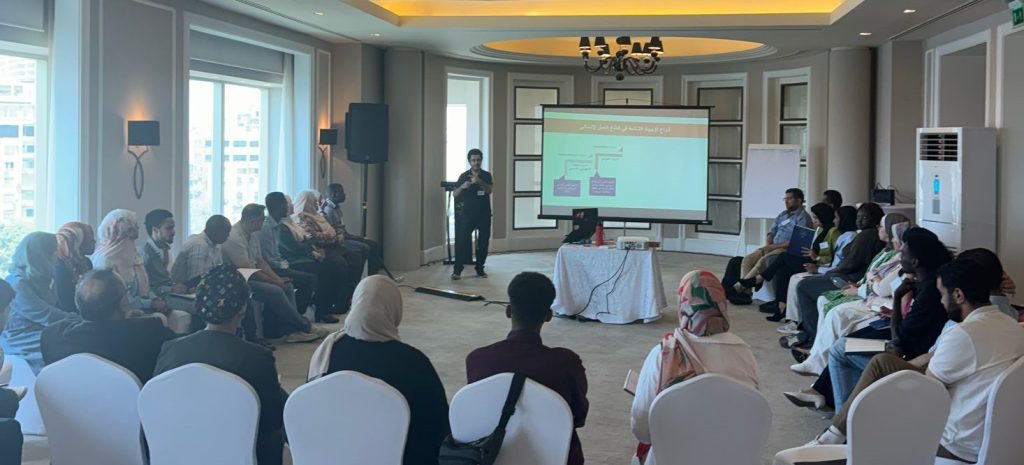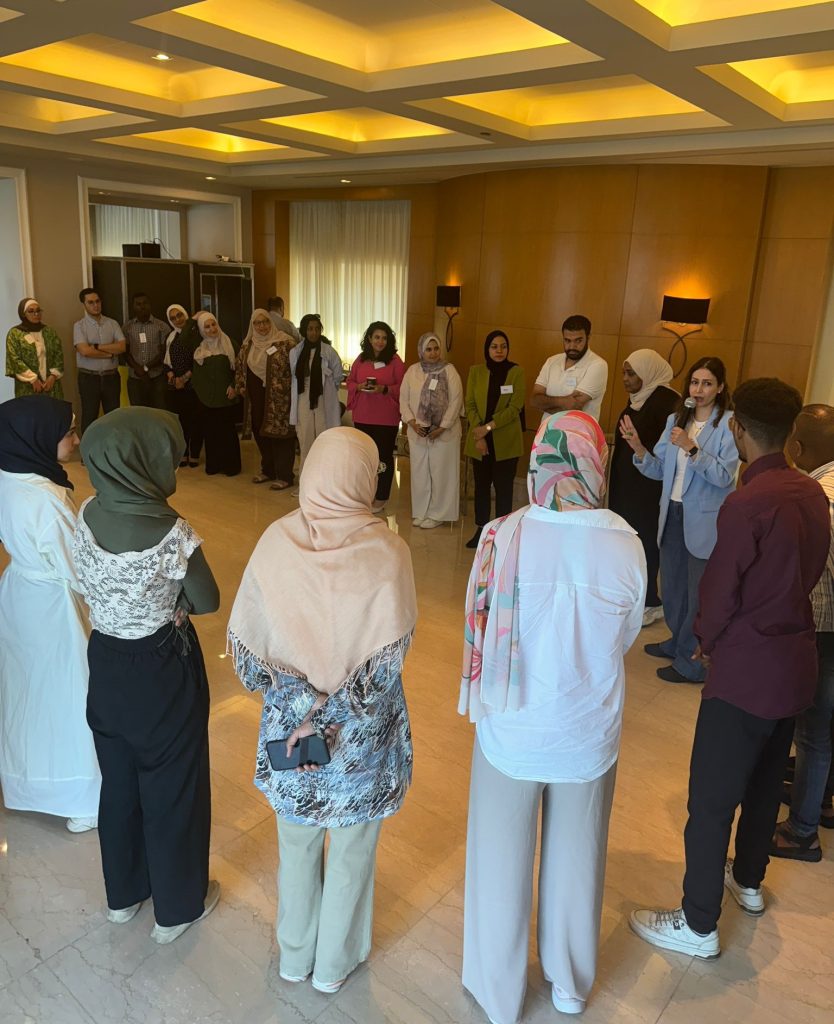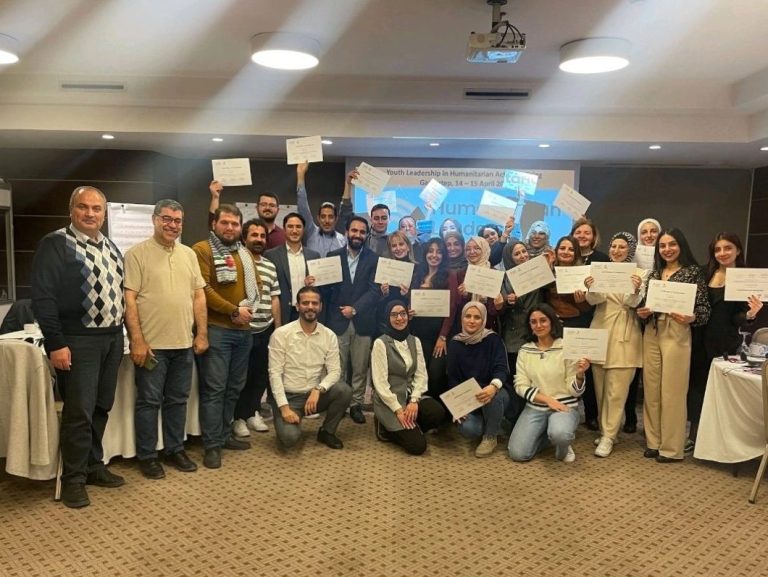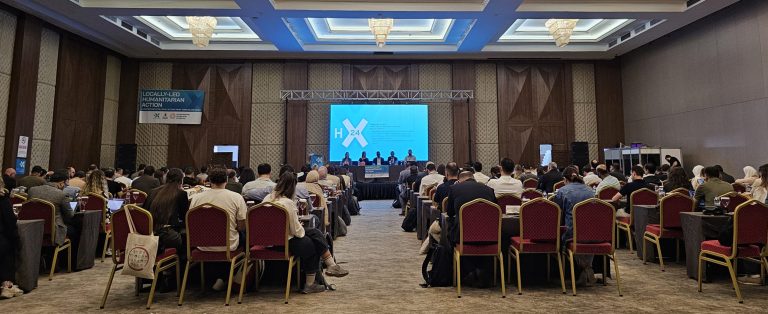On 14 August, the HLA, in collaboration with Save the Children International Egypt Country Office, conducted a pilot workshop in Cairo Resilient Responder: from Stress to Strength – Staff Wellbeing in Humanitarian Work. 56 local actors from Save the Children International, local and international NGOs, the UN and Government agencies involved in responses across Yemen, Egypt, Sudan, and Gaza attended this workshop. With the levels of stress and burnout among humanitarian workers responding to crises in the region extremely high, the workshop aimed to foster an environment of mutual support and experience exchange, enhancing resilience and wellbeing.
Elaf Ahmed Shanab, Medical Doctor in Training, shared:
– This initiative shed light on a common issue that tends to pass unaddressed in this line of work – the unmatched work stress of humanitarians of all disciplines. Through the ongoing tragedies and our active humanitarian responses towards both the ongoing Sudanese and Gaza crises, we are facing what can be referred to as “secondary traumatisation” due to the sensitivity of the cases encountered, along with “compassion fatigue” and burnout while trying our best to serve disadvantaged communities.
Throughout my journey, I have come to recognise peer support as an integral primal method of maintaining a healthy environment for productivity. From this workshop, I gained new perspectives while networking with amazing staff from all around the world, sharing the same values and serving the same purpose!
Mohamed Ashraf Mohamed, Facilitator on the youth and adolescent component, Save the Children, added:
– My major area of stress is that I feel I am not qualified to provide psychological support, notably when I have participants who are survivors of wars such as Gaza and Sudan, and I feel that they are unable to focus, participate or engage due to the current circumstances in their countries.

The workshop covered Introduction to Coaching, Peer Support, Education in Emergencies, Resilience, and Self-care. These focus areas were chosen based on needs assessments conducted with our colleagues in the Save the Children Egypt Country Office. Local actors respond to multiple types of crises, including in-country refugee response and conflicts in Gaza and Sudan, and most of the participants shared that they experience a lot of stress and don’t feel like they have enough time to take care of their wellbeing. The workshop provided a valuable space for participants to engage and connect with one another, drawing on the expertise of HLA colleagues who led the sessions.
Pawel Mania, Deputy Director, Impact & Influence, the HLA, said:
– It has been an incredibly rewarding yet humbling experience. Our colleagues in Egypt are navigating extremely challenging circumstances, with some of the most significant humanitarian crises unfolding in Gaza and Sudan at their borders. While this workshop is just a drop in the ocean of the needs organisations face in Egypt, it was heartening to see such a positive response and a high level of engagement despite the difficult conditions.
Tasneem Arafa, working on the youth component at Save the Children Egypt, highlighted:
– I find stress accumulating over time. I really enjoyed the workshop, especially [the session] about coaching with others. The drama triangle helped me to realise how to deal with daily stressors.

Participants expressed positive feedback, underlining the importance of regular wellbeing and stress resilience sessions accessible to staff in the region. Some of them mentioned that it was the first workshop focusing on humanitarian workers’ wellbeing they had ever attended and expressed willingness to share the new knowledge they gained with their colleagues and peers.
My major area of stress is to meet the needs … providing the humanitarian aid needed by children and adults, which requires many procedures to prepare it, and our ability to balance between taking the correct procedures to purchase the best services and speed in implementation due to the presence of people threatened by death and hunger. I found the workshop interesting and talked about how to focus on stress relief, dealing with our interfering thoughts and psychological stress, looking for our psychological well-being and how we can receive and give support. The HLA can help us replicate such workshops to focus on wellbeing and psychological support.
My work is among the team, we are all facing the problems we discussed today, stress and burnout. I can help my colleagues by offering peer support and I can also further cascade those techniques to the affected populations we are working with.
I will apply [these practices] with my team immediately, starting tomorrow.
The HLA plans to deliver more wellbeing sessions as part of our SHIFT programme in the Türkiye-Syria earthquake response.
You can access free online wellbeing resources on Kaya:
Wellness and Resilience for Frontline Workers and Managers
Staff and Partner Wellbeing in the Workplace
Mental Health and Psychosocial Wellbeing of Adolescents Affected by Conflict


